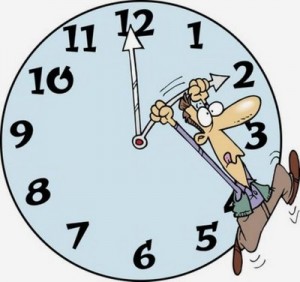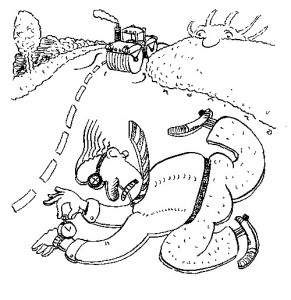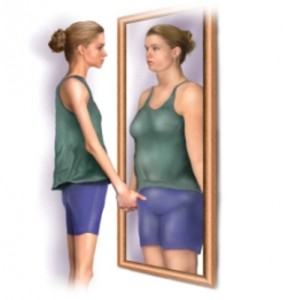
Daylight Saving Time from: Grayson County News Gazette
Due to the annual Daylight Saving Time, twice a year the clocks move an hour forward or backward. Although this federal law was adopted expecting only positive outcomes such as saving energy, many studies have shown that there are negative effects as well. Through research, it has been stated that losing an hour of sleep and thus the change in circadian rhythms can have mixed effects on people’s health.

Daylight Saving Time increase road kills from: Creative Loafing Atlanta
During the transitions into and out of daylight saving times, sleeping patterns get disturbed, leading up to sleep deprivation. According to Charles Czeisler, sleep deprivation increases the rate of fatal car crashes. In other words, more car accidents take place as drivers adjust to the corresponding shift in sleep patterns. A study by Stanley Coren in 1996 showed that the spring shift to daylight saving time, and the concomitant loss of one hour of sleep, resulted in an average increase in car accidents of approximately 8 percent, whereas the fall shift resulted in a decrease in accidents of approximately the same magnitude immediately after the time shift.
Whether or not people prefer the system of daylight saving time depends on each individual:
Tips to overcome the effects of daylight saving time:
1) Rest: Go to bed and get up earlier. It is very important to sleep early to get your usual amount of sleep and to wake up early to have a leisurely morning.
2) Plan ahead: Plan your day before to make sure you are well rested and also give yourself an extra time to drive to and from school or work.
3) Exercise: Exercise releases serotonin and endorphin which help advance your biological clock and improve your mood. Exercise in the afternoon and not within three hours before bedtime since it can interfere with the ability to fall asleep.
4) Sunlight: Get sunlight as soon as you get up and avoid light before going to bed. Controlling light intake helps your body’s internal clock adjust to the earlier waking and sleeping times.
Hayoung Nam








